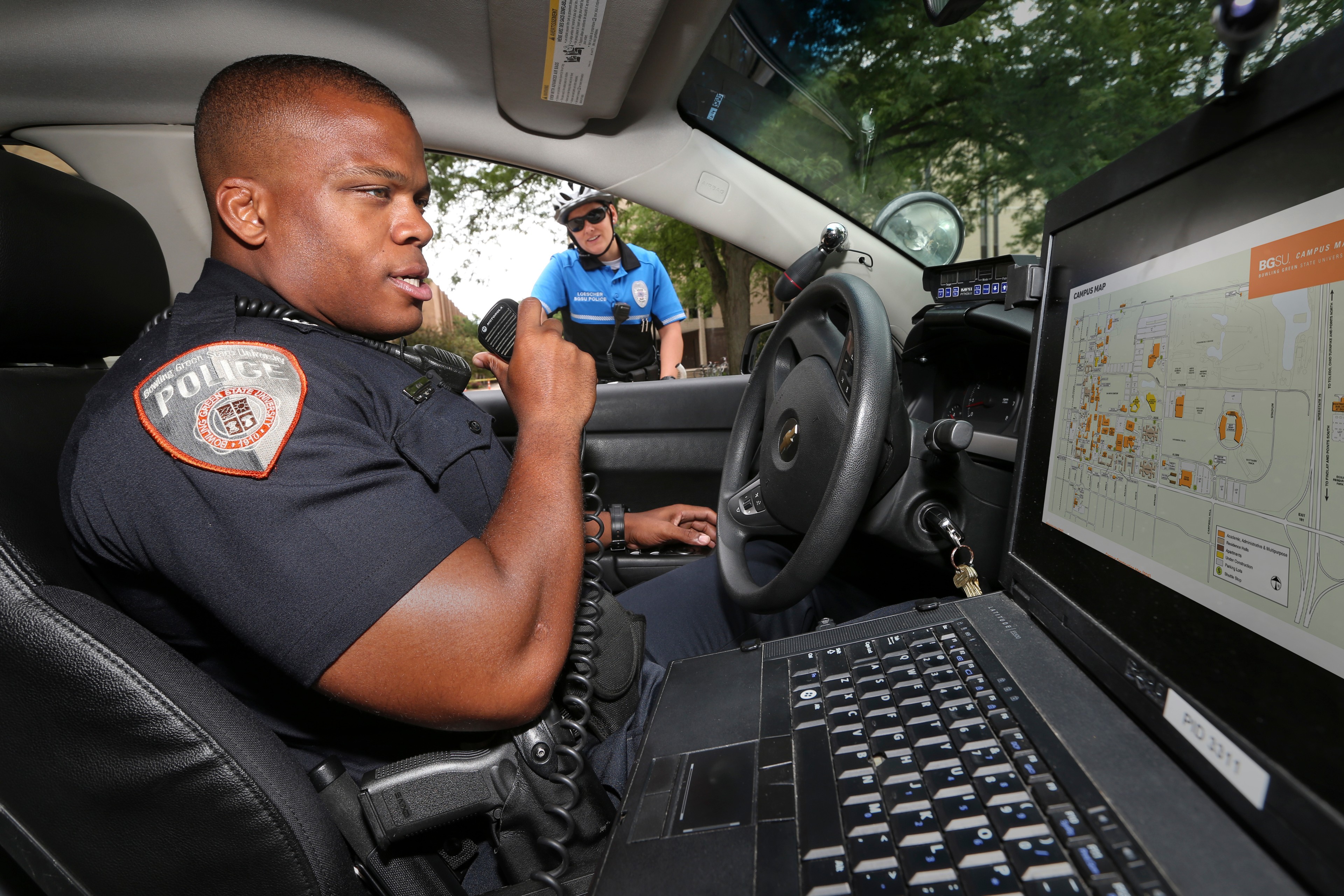Criminal Justice
Mission Statement
The mission of the Criminal Justice Program is to be the leader in educating future criminal justice practitioners by providing students with the skill needed to critically examine the world around them, the ability to understand and embrace the diversity of the society in which they serve and live, and the continuing desire to learn more about themselves, society, and the criminal justice field.
Advantages of Criminal Justice at BGSU
Learn from the best
Most of our criminal justice classes are taught by full-time, highly qualified faculty who are well respected nationally in their field and bring real-world experience to their teaching.
Connected students and faculty
Criminal Justice courses are open only to CJ majors. This guarantees that all examples and discussions are directly relevant to the students. It also helps build a feeling of camaraderie and enhances interaction between students with similar goals and interests.
Experiential component
The most extensive required field placement/practicum/internship of any program in the country brings what is learned in the classroom into the 'real world.' Students see the application of what they have learned and make valuable contacts which are useful in securing future employment. Field placements are available throughout the U.S.

Take the Next Steps to Complete Your Degree

MASTER OF CRIMINAL JUSTICE ONLINE PROGRAM NATIONALLY RANKED
The BGSU Online Master of Science in Criminal Justice program has consistently ranked among the nation's best, with the 2025 Best Online Programs rankings from U.S. News and World Report placing it at No. 2 in Ohio, No. 4 in the Midwest and No. 15 nationally.
Active Student Organization
The Justice Student Association is open to all students on campus with an interest in the criminal justice system. The organization brings speakers to campus representing local, state and federal agencies, private security firms, graduate schools and law schools.
Criminal Justice Program
223 Health and Human Services Building
Bowling Green State University
Bowling Green, OH 43403-0148
419-372-2326
Learning Outcomes
Upon completion of the graduate degree, students in Criminal Justice are expected to be able to:
- Students will be able to integrate theory and research with criminal justice practice.
- Students will be able to develop effective programmatic or policy responses to emerging criminal justice issues.
- Students will be able to appraise the general quality of criminal justice research and propose methods for improving this research.
- Students will be able to write and effectively communicate at a level expected of someone in a criminal justice leadership position.
Accreditation and/or Program/Cluster Review
Bowling Green State University [BGSU] is accredited by the Higher Learning Commission. BGSU has been accredited by the Higher Learning Commission since 01/01/1916. The most recent reaffirmation of accreditation was received in 2022 - 2023. Questions should be directed to the Office of Institutional Effectiveness.
The Criminal Justice program underwent Program/Cluster Review in 2021-22.
Professional Licensure (If applicable)
Bowling Green State University programs leading to licensure, certification and/or endorsement, whether delivered online, face-to-face or in a blended format, satisfy the academic requirements for those credentials set forth by the State of Ohio.
Requirements for licensure, certification and/or endorsement eligibility vary greatly from one profession to another and from state to state. The Criminal Justice program does not lead to professional licensure.
Gainful Employment (If applicable)
Under the Higher Education Act Title IV disclosure requirements, an institution must provide current and prospective students with information about each of its programs that prepares students for gainful employment in a recognized occupation.
The Criminal Justice program is not a recognized occupation that requires a Gainful Employment disclosure.
Updated: 12/09/2025 08:44AM
